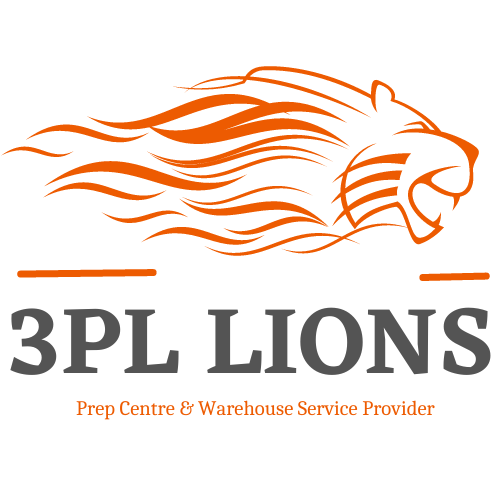In today’s complex and rapidly evolving global supply chain, businesses are increasingly relying on third-party logistics (3PL) providers to manage their freight needs. These providers offer a range of services that streamline logistics, reduce costs, and enhance efficiency. This article delves into the world of 3PL freight, exploring what it is, its benefits, types, and how to choose the right 3PL provider for your business.
What is 3PL Freight?
Third-Party Logistics (3PL) refers to the outsourcing of logistics and supply chain management functions to a specialized service provider. These providers handle various aspects of logistics, including transportation, warehousing, inventory management, and order fulfillment. 3PL freight specifically focuses on the transportation and delivery of goods from one location to another.
The Benefits of Using 3PL Freight Services
Cost Savings
One of the primary reasons businesses turn to 3PL providers is to save money. By outsourcing logistics, companies can avoid the significant capital investment required to maintain their own fleet of trucks, warehouses, and logistics personnel. 3PL providers leverage their scale and expertise to negotiate better rates with carriers, resulting in lower transportation costs for their clients.
Expertise and Efficiency
3PL providers specialize in logistics and have extensive experience managing complex supply chains. They use advanced technology and industry best practices to optimize routes, manage inventory, and ensure timely deliveries. This expertise leads to improved efficiency, reduced transit times, and fewer errors.
Scalability and Flexibility
As businesses grow or experience seasonal fluctuations in demand, their logistics needs can change dramatically. 3PL providers offer the flexibility to scale services up or down as needed. Whether a company needs additional warehouse space, more trucks, or expedited shipping, a 3PL provider can quickly adjust to meet those requirements.
Focus on Core Competencies
Outsourcing logistics allows companies to focus on their core competencies, such as product development, marketing, and customer service. By leaving logistics to the experts, businesses can allocate more resources to activities that drive growth and competitive advantage.
Access to Technology
3PL providers invest in state-of-the-art technology to manage their operations. This includes transportation management systems (TMS), warehouse management systems (WMS), and real-time tracking tools. Clients benefit from this technology without having to invest in it themselves, gaining better visibility and control over their supply chain.
Types of 3PL Freight Services
Transportation-Based 3PL
Transportation-based 3PL providers focus primarily on the movement of goods. They manage various modes of transportation, including trucking, rail, air, and ocean freight. Services may include freight brokerage, dedicated contract carriage, and expedited shipping.
Warehouse/Distribution-Based 3PL
These providers offer comprehensive warehousing and distribution services. They manage storage, inventory control, order picking, packing, and shipping. Some also provide value-added services such as kitting, assembly, and labeling.
Forwarder-Based 3PL
Forwarder-based 3PL providers act as intermediaries between shippers and carriers. They negotiate freight rates, book cargo space, and handle documentation and customs clearance. This type of 3PL is particularly valuable for international shipments.
Financial/Information-Based 3PL
These providers offer logistics-related financial and information services. This can include freight payment and auditing, cost analysis, transportation management software, and supply chain consulting.
Service Developer 3PL
Service developer 3PLs provide specialized logistics services that go beyond traditional offerings. This might include reverse logistics (handling returns and recycling), freight forwarding, and real-time inventory management.
How to Choose the Right 3PL Provider
Selecting the right 3PL provider is critical to achieving the benefits outlined above. Here are some key factors to consider:
Experience and Expertise
Look for a provider with a proven track record in your industry. They should have experience handling the specific logistics challenges you face and a deep understanding of your market.
Range of Services
Ensure the 3PL provider offers the range of services you need. This might include transportation, warehousing, order fulfillment, and value-added services. A provider that can manage multiple aspects of your supply chain will offer better integration and efficiency.
Technology and Innovation
Evaluate the technology used by the 3PL provider. They should offer robust systems for tracking, reporting, and managing logistics operations. Advanced technology can provide greater visibility, control, and efficiency.
Scalability and Flexibility
Choose a provider that can scale their services to match your growth and adapt to changes in demand. Flexibility is crucial for managing seasonal fluctuations, new product launches, and market expansions.
Customer Service
Excellent customer service is essential for a successful partnership. Look for a provider that offers responsive support, clear communication, and a dedicated account manager.
Cost Structure
Understand the provider’s cost structure and ensure it aligns with your budget and financial goals. Look for transparency in pricing and be aware of any additional fees that may apply.
Reputation and References
Check the provider’s reputation in the industry and ask for references from current or past clients. Positive feedback and testimonials can give you confidence in their ability to deliver reliable and effective services.
Conclusion
3PL freight services play a vital role in modern supply chain management, offering cost savings, efficiency, and scalability. By outsourcing logistics to a trusted 3PL provider, businesses can focus on their core competencies, gain access to advanced technology, and navigate the complexities of global trade with ease. When choosing a 3PL provider, consider their experience, range of services, technology, scalability, customer service, cost structure, and reputation. By doing so, you can ensure a successful partnership that drives your business forward and keeps your supply chain running smoothly.

